Answered step by step
Verified Expert Solution
Question
1 Approved Answer
organic chem 2 the unknown alcohol for this is C5H12O which is 1-pentanol please answer the following please explain the signal structure relationship and also
organic chem 2 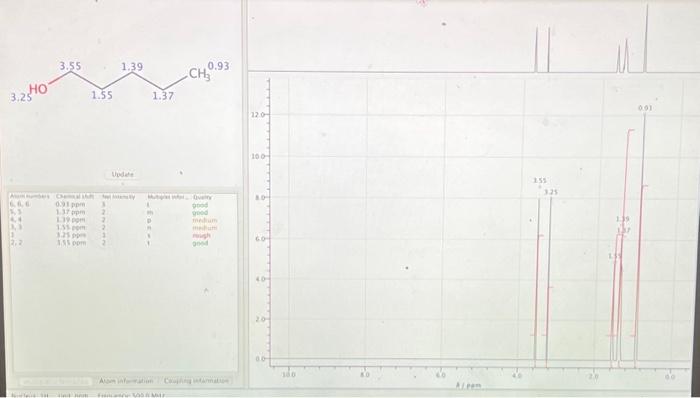
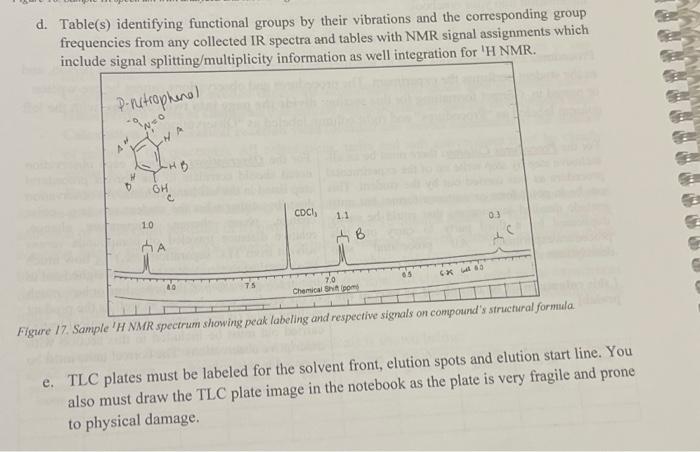
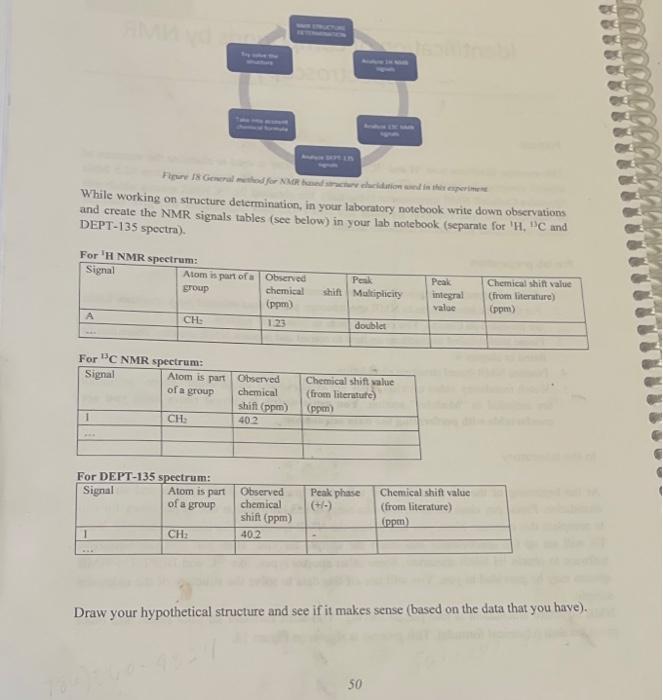
Work on your provided spectra. Make sure that: - All signals on 1H,13C and DEPT spectra are properly labeled. - Data tables and peak analysis is present - Draw structure on each spectrum and label it with letters for 1HNMR and with numbers for 13C NMR and DEPT-135. - Label all signals on the spectra with letters or numbers accordingly (example page 40, figure 17). - Fill out tables. RESULTS 13 NNAD ennntmems PASTE YOUR ANNOTATED SPECTRA BELOW: d. Table(s) identifying functional groups by their vibrations and the corresponding group frequencies from any collected IR spectra and tables with NMR signal assignments which inclp.da cimnal enlintina/multinlicitv information as well integration for 'H NMR. Figure 17. Sample'H NMR spectrum showing peak labeling ana respectuve sy mula e. TLC plates must be labeled for the solvent front, elution spots and elution start line. You also must draw the TLC plate image in the notebook as the plate is very fragile and prone to physical damage. While working on structure determination, in your laboratory notebook write down observations and creale the NMR signals tables (see below) in your lab notebook (separaie for 'H, " C and DEPT-135 spectra). Draw your hypothetical structure and see if it makes sense (based on the data that you have). Work on your provided spectra. Make sure that: - All signals on 1H,13C and DEPT spectra are properly labeled. - Data tables and peak analysis is present - Draw structure on each spectrum and label it with letters for 1HNMR and with numbers for 13C NMR and DEPT-135. - Label all signals on the spectra with letters or numbers accordingly (example page 40, figure 17). - Fill out tables. RESULTS 13 NNAD ennntmems PASTE YOUR ANNOTATED SPECTRA BELOW: d. Table(s) identifying functional groups by their vibrations and the corresponding group frequencies from any collected IR spectra and tables with NMR signal assignments which inclp.da cimnal enlintina/multinlicitv information as well integration for 'H NMR. Figure 17. Sample'H NMR spectrum showing peak labeling ana respectuve sy mula e. TLC plates must be labeled for the solvent front, elution spots and elution start line. You also must draw the TLC plate image in the notebook as the plate is very fragile and prone to physical damage. While working on structure determination, in your laboratory notebook write down observations and creale the NMR signals tables (see below) in your lab notebook (separaie for 'H, " C and DEPT-135 spectra). Draw your hypothetical structure and see if it makes sense (based on the data that you have) the unknown alcohol for this is C5H12O
which is 1-pentanol 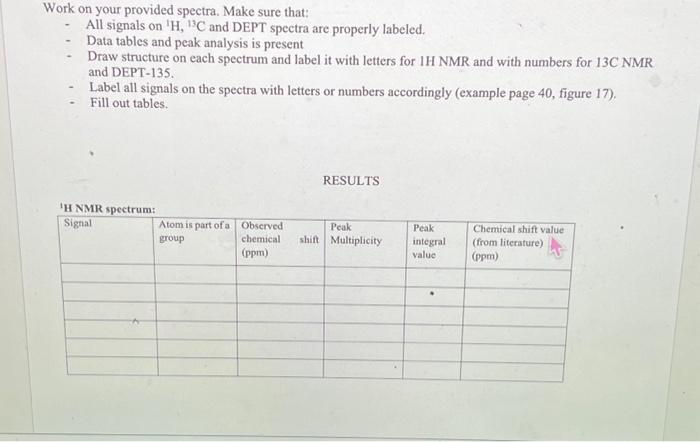
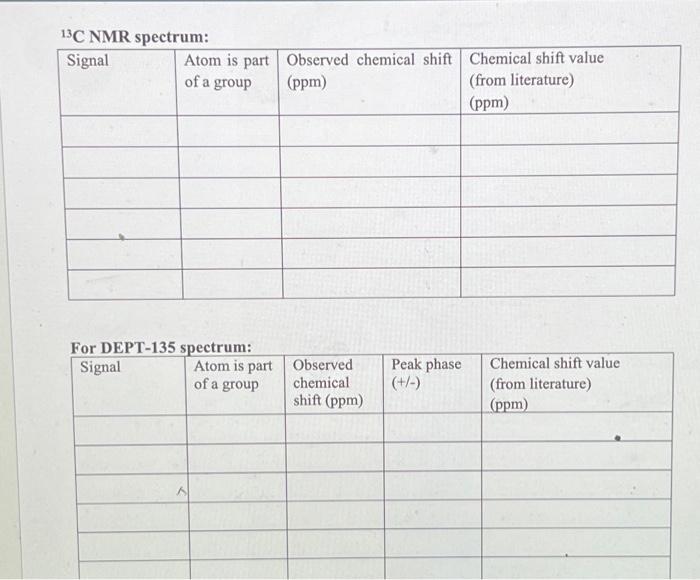
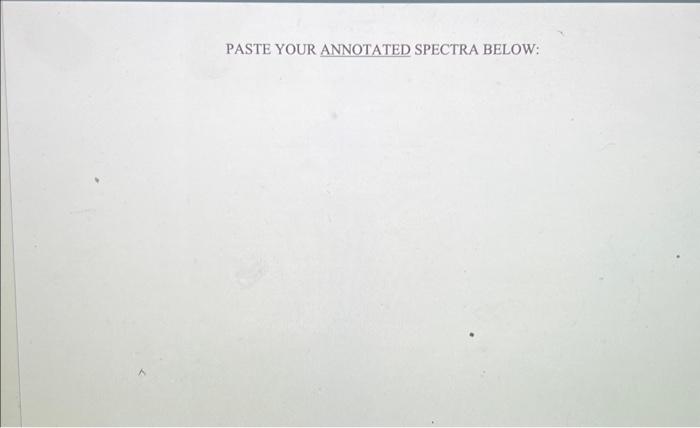
please answer the following please explain the signal structure relationship and also draw on each soectrum and label it with 1H NMR and with numbers for 13C NMR and DEPT-135



my HNMR Prediction is below

label all signals on spectra with letters or numbers according to figure 17

fill out tables

Step by Step Solution
There are 3 Steps involved in it
Step: 1

Get Instant Access to Expert-Tailored Solutions
See step-by-step solutions with expert insights and AI powered tools for academic success
Step: 2

Step: 3

Ace Your Homework with AI
Get the answers you need in no time with our AI-driven, step-by-step assistance
Get Started


